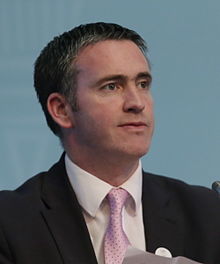Ireland backs reform of International Labour Organisation’s governing body

Damien English
Ireland has backed long-standing proposals to widen international participation in the International Labour Organisation (ILO).
Employment Minister Damien English said the government had decided to ratify the 1986 Instrument for the Amendment of the ILO Constitution.
The instrument would change the composition and governance of the ILO’s governing body; the procedure for appointment of the director general; voting at the International Labour Conference; and rules governing how the Constitution may be amended.
The amendment needs to be ratified by 125 member states, including five of the 10 permanent members, to enter into force. It has currently been ratified by 116 member states, including two permanent members, India and Italy.
Ireland just marked the end of its first-ever term as a titulaire (full member) of the governing body.
Mr English said: “Ireland has a rich history with the ILO, as the first international organisation we joined as a free State. Many of the employment rights which we currently benefit from, such as minimum working age, maternity leave, maximum weekly working hours and annual leave, are the result of negotiations over the past 100 years by the constituents of the ILO.
“It was a great source of pride for us when Ireland became a full member of the governing body for the first time in 2017 and, as we vacate that role, our commitment to this organisation is as strong now as it was when we joined in 1923.”
He added: “It is clear that the constitutional amendment with its revised criteria for electing members to the ILO Governing body would ensure that the current under-representation of the African region is addressed, and it would increase the opportunities for smaller countries such as Ireland to secure a seat on the governing body in future.”
The reforms and changes to the governing body are “now long overdue”, he said, and Ireland’s ratification “represents a tangible demonstration of our commitment to a strong multilateral system to work toward a more even world representation on global bodies”.






